
It changes your attitude, somewhat, to the fish you're eating when you know the name of the fisherman who caught it. Joe caught my bass, out on the stormy seas while I was pottering around my warm kitchen with a cup of tea that didn't throw itself across the room every ten seconds as the house hit a wave That adds a whole new level of respect as I place the fish in the hot pan.
The crew of the day boat 'Le Belhara', owned by Chris Veasey, fish out of Eastbourne, and the catch makes its way to Veasey and Sons Fishmonger, in Forest Row, East Sussex, about 30 miles from the coast. Chris opened the shop, housed in a former butcher's, with son-in-law Dan Howes eight years ago after success at the East Grinstead Farmers' Market.
While the day boat sails from Eastbourne, Dan and his colleagues staff the bright, yet cosy feeling shop on the narrow road that leads out of the village to Hartfield. An elderly man and lady whom I assume to be his wife by the way they argue, looks at me standing over the mussels and says "We're very fortunate to have this fishmongers in the village." I nod back and mumble something about my good luck that they are at the market every Saturday where I live.
I first discovered them when they started their crushed ice-laden fish stall at the Crystal Palace food market four years ago and finally got round to visiting them last week. They now have ten market stalls every week as well as the shop and are spreading their passion for quality fish wherever they go.
It's a privilege to be able to buy such good fresh fish minutes from my house in London on a Saturday morning. One of my great disappointments in life is how much of our amazing seafood gets exported. But that's because The Europeans seem to respect fish more, it's more part of their daily diet than here, where we stretch mainly to cod and chips on a Friday or fish fingers for the children. Fish and chips is all very well, but the chips must be hot, salty and spiky with vinegar, the sea should be no more than 15 metres away while you eat them and the weather should be blustery.
But it's more a state of mind than a meal. In reality that state of mind often becomes a state of disappointment, apart from the very occasional highlight at places such as Lewis' fish shop in very fishy town of Newlyn where it was so good we went a few times on our summer holidays last year.
Sadly, the price of fish is often serious injury or lives lost at sea, Dan explains as he shows me an x-ray from one of the fishermen's hands after an accident with a winch. Bones crushed and crunched out of shape, finger joints at right-angles, like a particularly gruesome skeleton pianist from a travelling horror show.
The cod is particularly good at the moment, Dan tells me as I eye what to buy. Bass, sitting firm on it's bed of sparkling ice crystals as if in a giant jewellery box has to come home with me, it looks too good to resist. I also take a meaty cod loin which a day later is shared with the family in a fish molee, rich with coconut sauce, onion and the hint of cinnamon, cardamon and clove. I'm generous like that. Home made fish cakes also fall into my bag, a quick supper for when we've been out all day.
And last, I also ask for a bag of mussels, which, coincidentally, was the nickname I always wanted. A few large handfuls go in, they clack and knock together as they slip into the bag, looking like shiny black pebbles on the beach as the waves ebb away.
The bass will be dusted in flour and cooked in darkening butter. A squeeze of lemon may be enough, but I'm always a fan of salsa verde or a herb-laced olive oil. One of the best things about fish is that you can have supper on the table in about ten minutes if you get yourself together. The molee I made was ready in the time it took for the rice to cook, and the mussels, which I had for lunch today were ready in less than five. You can't even get fast food that fast. Just remember where it came from as you enjoy it.
Mussels with miso and n'duja broth
Ingredients for two people
A bag of spanking fresh mussels (these keep in the fridge for up to a week if looked after)
2tbsp white miso paste
2tbsp n'duja
500ml hot water
1 shallot or small onion, very finely diced
1 clove of garlic, grated or crushed
A large splash of verjus to steam the mussels (white wine or water as an alternative; I prefer verjus which keeps better and is more interesting than the leftovers of some bad supermarket wine)
Olive oil
Salt to season
Method
Heat a heavy, lidded saucepan and add the verjus followed by the mussels. Put the lid on and steam until they have opened, this should only take a couple of minutes. Remove from the heat.
Meanwhile, sauté the shallots and garlic in a little olive oil until soft, season well. Add the miso and n'duja and a splash of hot water and mix well to a creamy paste. Add the rest of the water, mix well and bring to just below the boil. Remove from the heat and pour into the mussel pan. Stir gently and serve straight away. Possibly with some crusty baguette if you fancy.
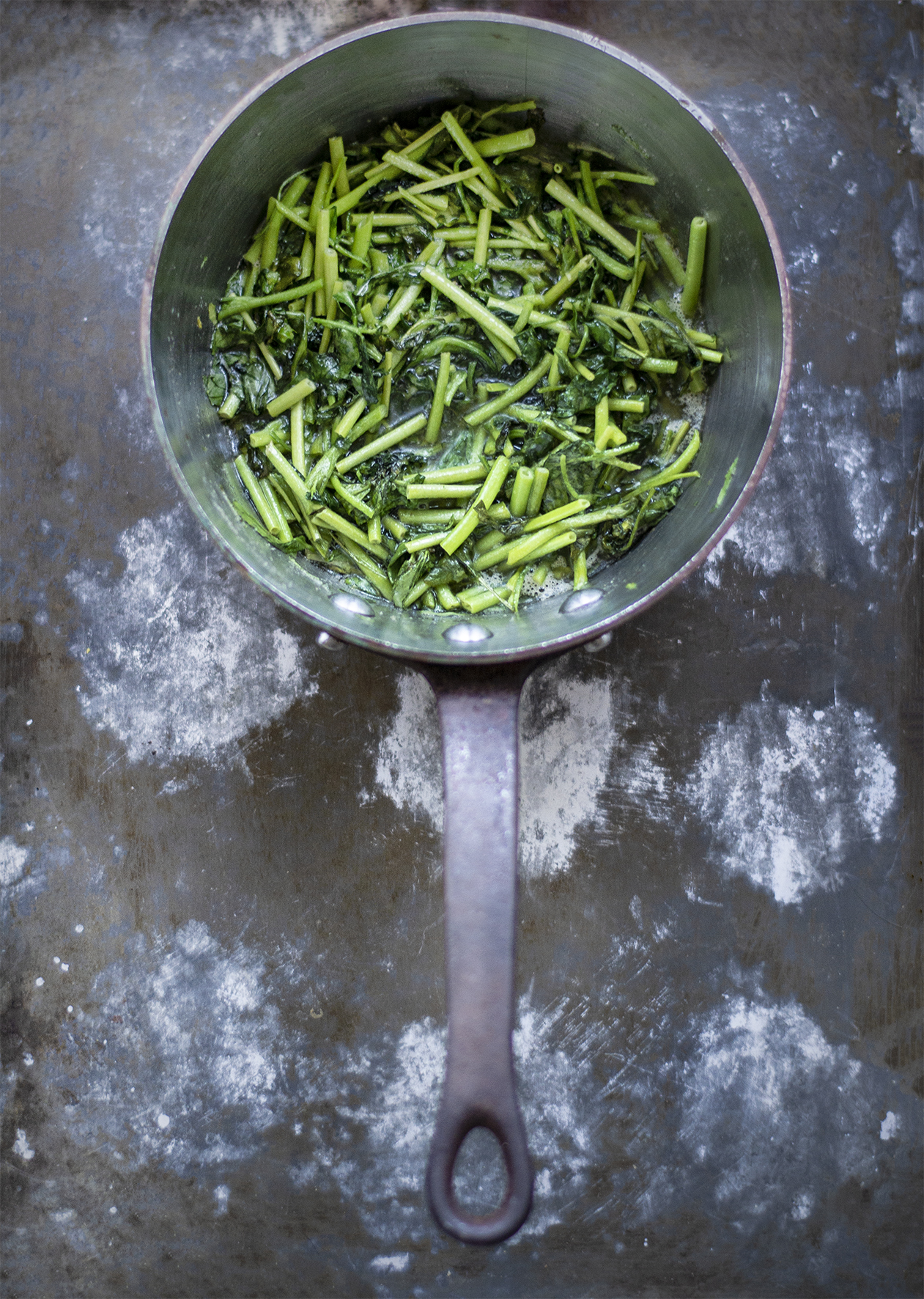

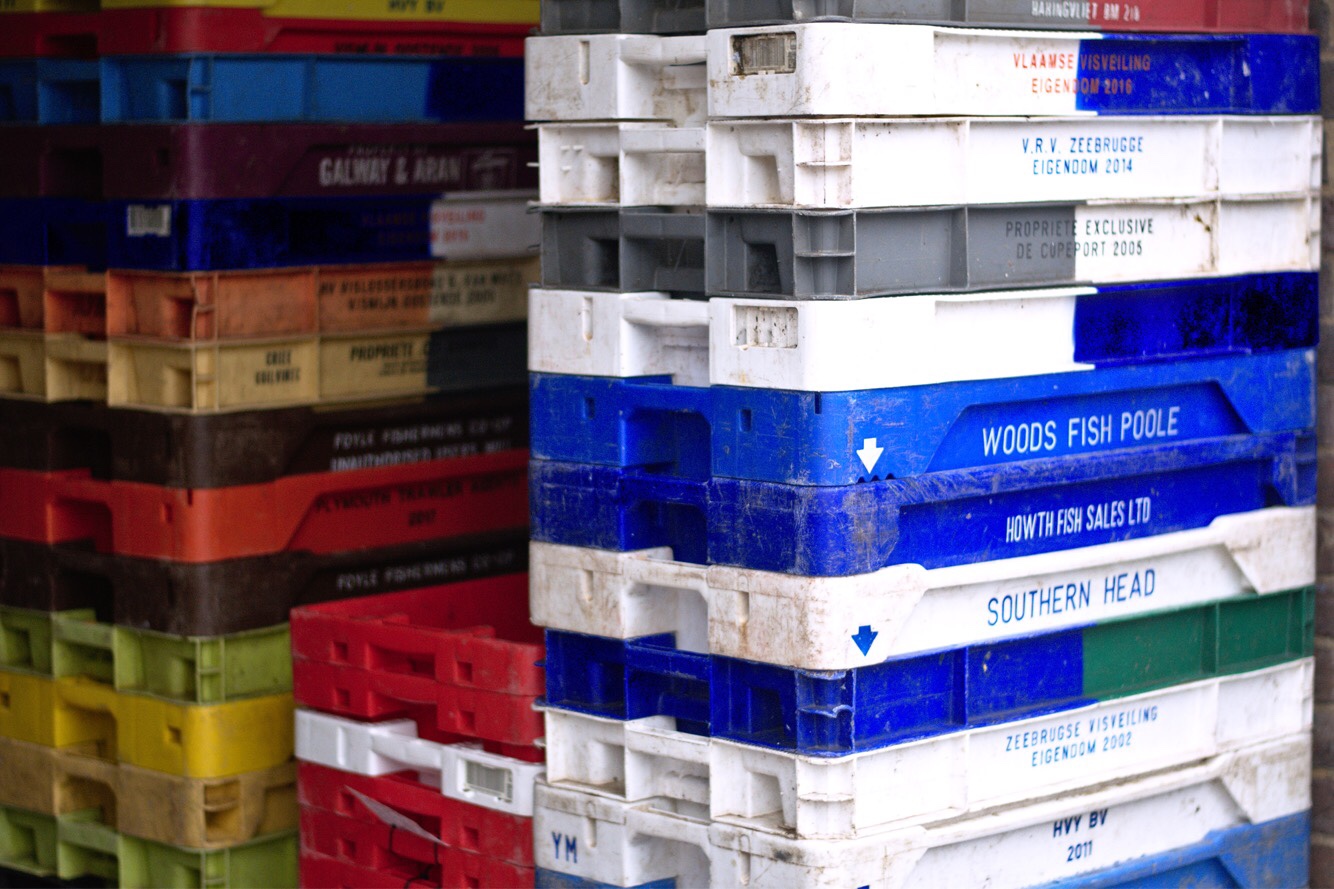


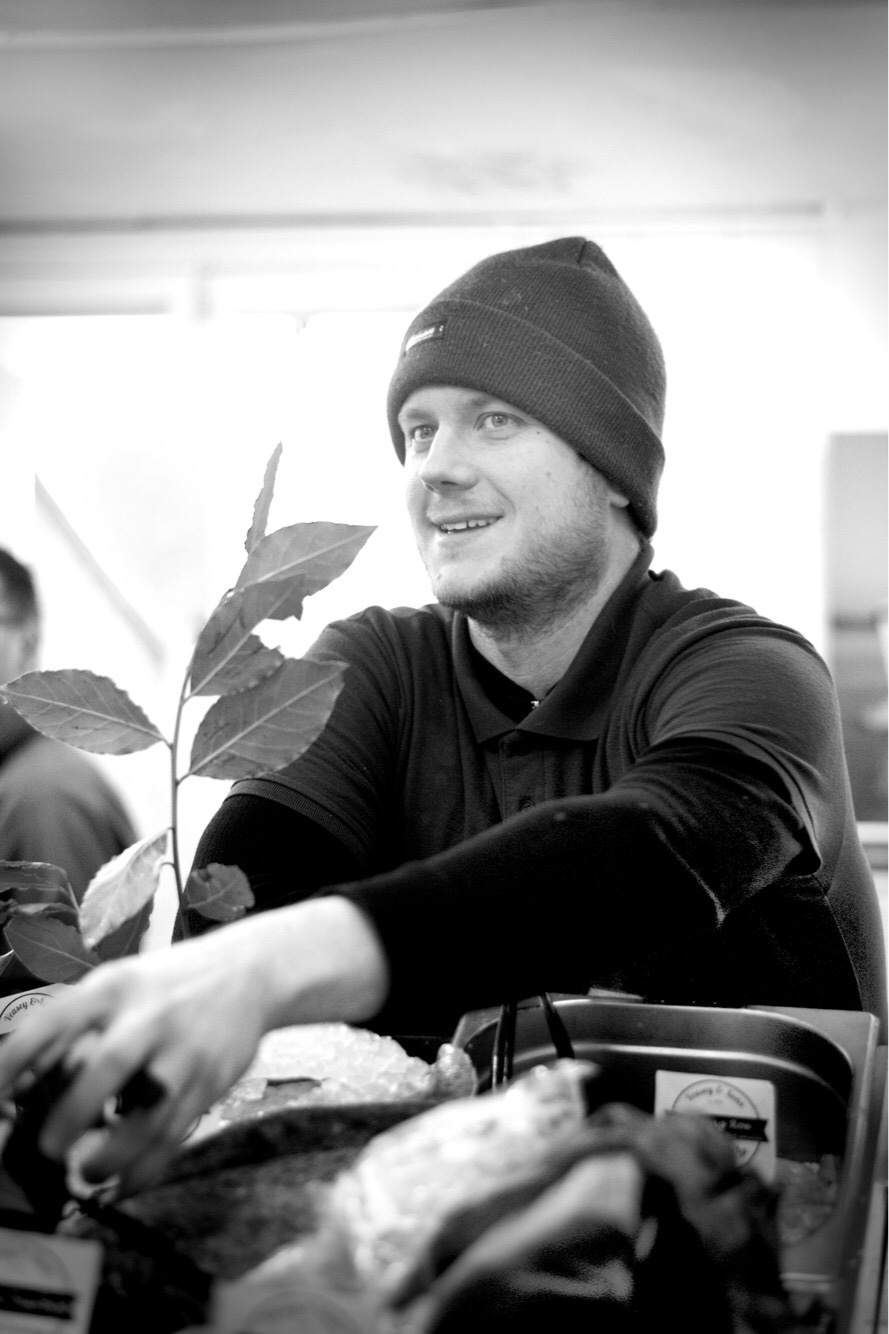
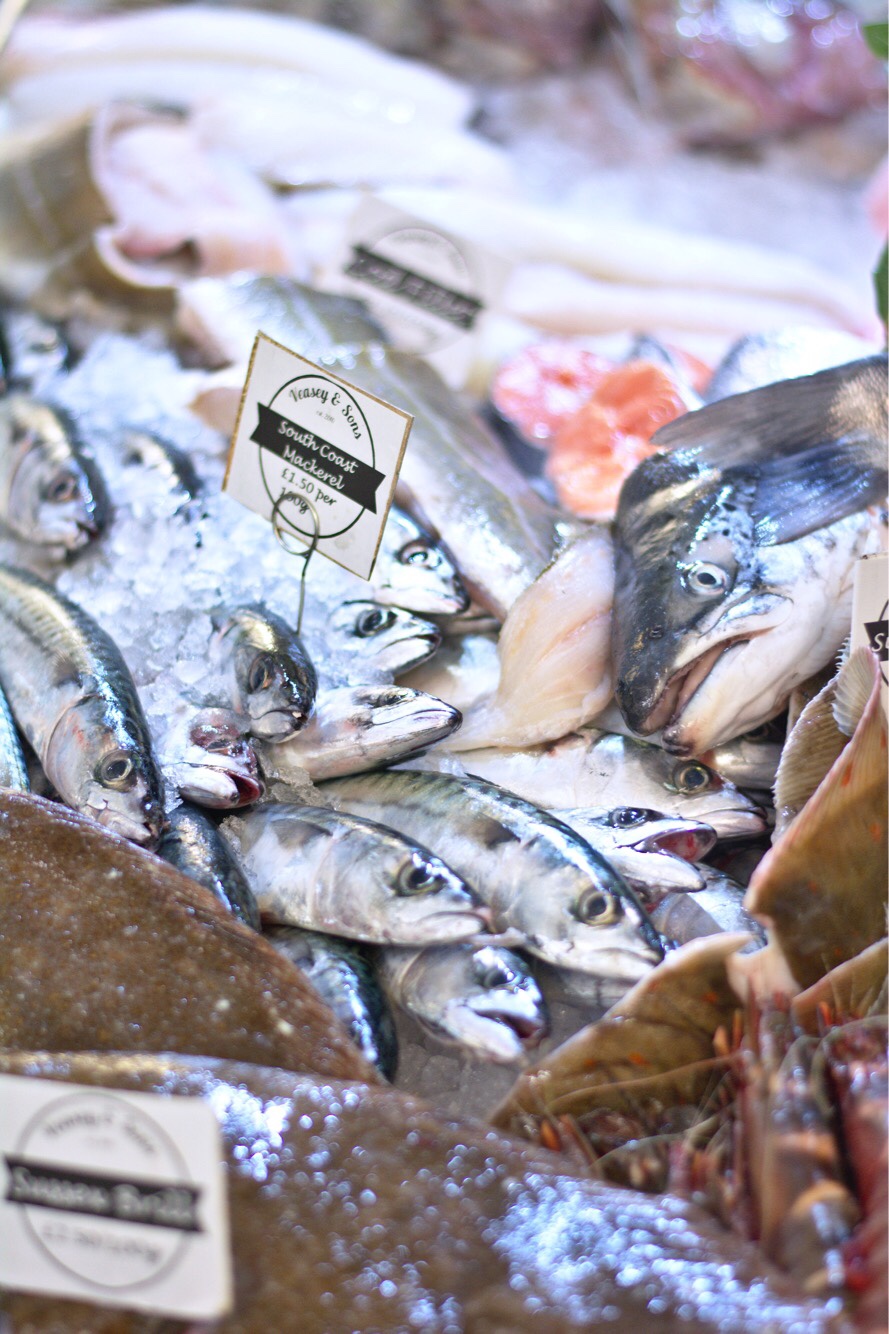


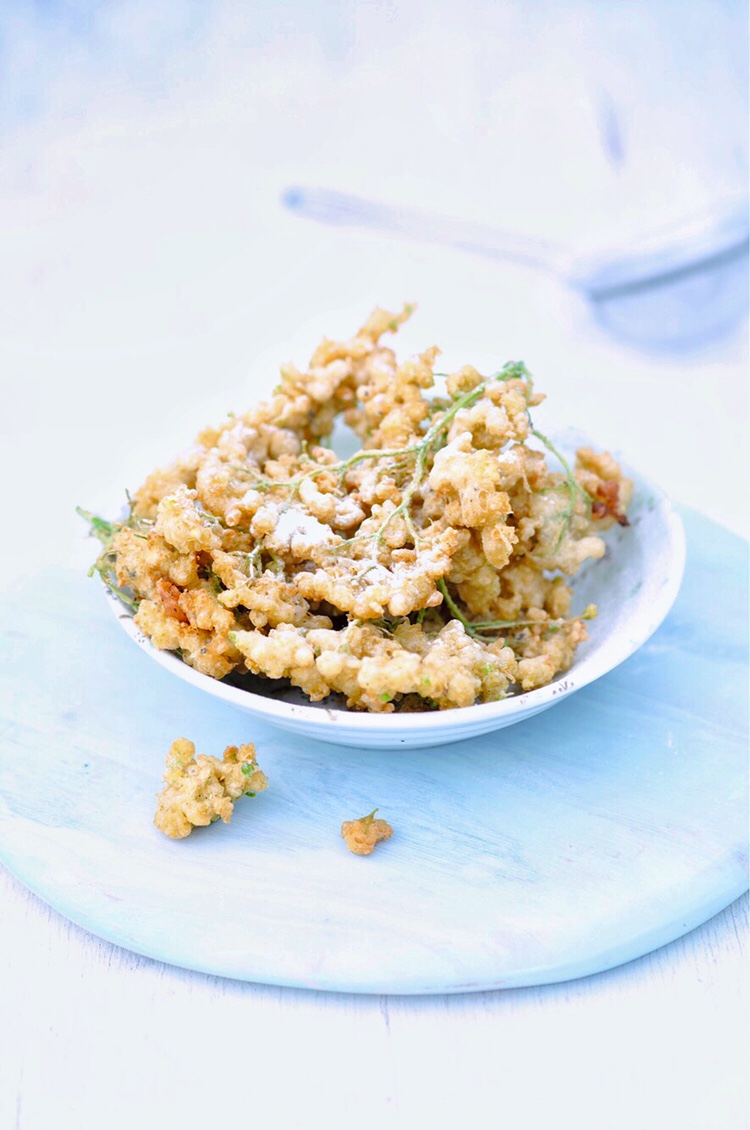 It's now late May, nearly everything is fully laden with flowers and the leaves hang heavily from the trees and bushes looking like a 1950's film star in a fur coat.And now there is also a legitimate reason to lurk in the bushes in your local park. Here inLondon the elderflower is showing off at every turn. So grab a bag and some snippers and head out foraging.It's such an exciting part of the year and I wait for a day where the sun is blasting down, (not always an option, I know) before heading out. Let the morning dry the flowers a little with its light and warmth then carefully snip from the tree. Be gentle with them, try to keep as much pollen on them as you can, fill a bag and scamper home.You can make cordial too if you like, I reckon a carrier bag full is enough for both, you don't need that many for fritters. If you want these to be vegetarian, you'll have to make sure all the bugs are out first. Tap them over a white tray or plate until you've got rid of as many as you can.You can leave the spicing out if you prefer a subtle and pure elderflower taste, they're still delicious. Either way, it a lovely way to fritter away a morning.IngredientsA bagful of elderflowers on their stalks100g plain flour1tbsp baking powder2tsp ground cardamom4 cloves, ground1tbsp ground cinnamon1tsp fennel seeds, ground1 egg185ml fizzy waterIcing sugar to dust1l rapeseed oil to fryMethodHeat the oil to 180c in a deep-fat fryer or heavy-based deep saucepan making sure it doesn't go more than halfway up. It will expand when the battered flowers go in.Whisk together the batter ingredients and let it rest for five minutes.Dip a head of elderflowers in the batter and when the oil is hot enough gently drop them in. Cook for a minute or so, turning over every now and then until light golden and crisp. Drain on some kitchen paper then lay out on a tray while you repeat and finish the rest.Leave to cool a little then dust with icing sugar to serve.This weekRead:Out of Africa by Karen Blixen. I had no idea she wrote Babette's Feast, nor did I think this book would be as charming and readable as it was. I even laughed out loud at one story such is her gentle style. I thought it would be all Meryl Streep-y gnashing of teeth and wailing about 'My Africa'. Not that I've seen the film, but that's the impression I had.Listened:A R Rahman. Lots of his excellent film music, beautiful and uplifting and at times melancholy. Although most upsetting was hearing the Pussycat Dolls appear on one trackEat:Far too many slices of very bad supermarket pizza with sweetcorn and barbecue sauce on. I know. Don't judge me, it's all there was on the shoot and I was ravenous.Saw:Brooklyn 99. As the final series draws to a close (although apparently it's been taken up by another network) I remembered so much of what I love about it. The relentless positivity and the camaraderie is a refreshing change in a hard-hitting dark cop drama. (Err? - Ed.)
It's now late May, nearly everything is fully laden with flowers and the leaves hang heavily from the trees and bushes looking like a 1950's film star in a fur coat.And now there is also a legitimate reason to lurk in the bushes in your local park. Here inLondon the elderflower is showing off at every turn. So grab a bag and some snippers and head out foraging.It's such an exciting part of the year and I wait for a day where the sun is blasting down, (not always an option, I know) before heading out. Let the morning dry the flowers a little with its light and warmth then carefully snip from the tree. Be gentle with them, try to keep as much pollen on them as you can, fill a bag and scamper home.You can make cordial too if you like, I reckon a carrier bag full is enough for both, you don't need that many for fritters. If you want these to be vegetarian, you'll have to make sure all the bugs are out first. Tap them over a white tray or plate until you've got rid of as many as you can.You can leave the spicing out if you prefer a subtle and pure elderflower taste, they're still delicious. Either way, it a lovely way to fritter away a morning.IngredientsA bagful of elderflowers on their stalks100g plain flour1tbsp baking powder2tsp ground cardamom4 cloves, ground1tbsp ground cinnamon1tsp fennel seeds, ground1 egg185ml fizzy waterIcing sugar to dust1l rapeseed oil to fryMethodHeat the oil to 180c in a deep-fat fryer or heavy-based deep saucepan making sure it doesn't go more than halfway up. It will expand when the battered flowers go in.Whisk together the batter ingredients and let it rest for five minutes.Dip a head of elderflowers in the batter and when the oil is hot enough gently drop them in. Cook for a minute or so, turning over every now and then until light golden and crisp. Drain on some kitchen paper then lay out on a tray while you repeat and finish the rest.Leave to cool a little then dust with icing sugar to serve.This weekRead:Out of Africa by Karen Blixen. I had no idea she wrote Babette's Feast, nor did I think this book would be as charming and readable as it was. I even laughed out loud at one story such is her gentle style. I thought it would be all Meryl Streep-y gnashing of teeth and wailing about 'My Africa'. Not that I've seen the film, but that's the impression I had.Listened:A R Rahman. Lots of his excellent film music, beautiful and uplifting and at times melancholy. Although most upsetting was hearing the Pussycat Dolls appear on one trackEat:Far too many slices of very bad supermarket pizza with sweetcorn and barbecue sauce on. I know. Don't judge me, it's all there was on the shoot and I was ravenous.Saw:Brooklyn 99. As the final series draws to a close (although apparently it's been taken up by another network) I remembered so much of what I love about it. The relentless positivity and the camaraderie is a refreshing change in a hard-hitting dark cop drama. (Err? - Ed.)